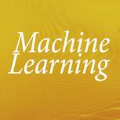Using Machine Learning and Deep Learning to predict cognitive tasks from electroencephalography (EEG) signals has been a fast-developing area in Brain-Computer Interfaces (BCI). However, during the COVID-19 pandemic, data collection and analysis could be more challenging than before. This paper explored machine learning algorithms that can run efficiently on personal computers for BCI classification tasks. Also, we investigated a way to conduct such BCI experiments remotely via Zoom. The results showed that Random Forest and RBF SVM performed well for EEG classification tasks. The remote experiment during the pandemic yielded several challenges, and we discussed the possible solutions; nevertheless, we developed a protocol that grants non-experts who are interested a guideline for such data collection.
翻译:利用机器学习和深层学习来预测电子脑电学信号中的认知任务一直是脑-计算机界面(BCI)的一个快速发展领域。然而,在COVID-19大流行期间,数据收集和分析可能比以前更具挑战性。本文探讨了在个人计算机上高效运行的机器学习算法,用于BCI分类任务。此外,我们还研究了一种通过Zoom远程进行这种BCI实验的方法。结果显示随机森林和RBF SVM在EG分类任务方面表现良好。在这场大流行期间的远程实验产生了若干挑战,我们讨论了可能的解决办法;然而,我们制定了一个协议,向有兴趣为这种数据收集提供指导的非专家提供一种指导。


